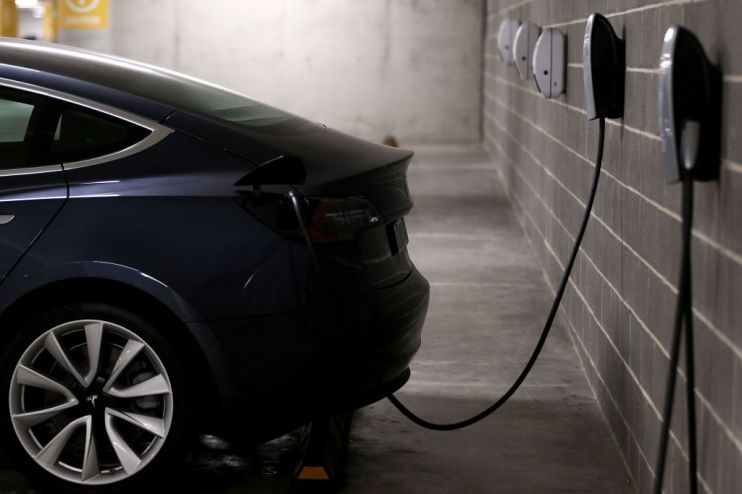The UK has conceptualised 21st century tech – now it’s time for us to make it, too

Few people would argue that the lithium ion batteries which power our smartphones, or the flat-screen televisions sitting in millions of living rooms across the world, were not game-changing scientific innovations.
Fewer still would be aware that the research and conceptualisation behind these innovations was conducted here in the UK. So too, in fact, was the research behind touchpads, LEDs and the microchip.
Despite this, none of these modern marvels are predominantly manufactured on UK soil.
Read more: Hair Force Gone: Donald Trump says goodbye to Washington
More often than not, this country’s contribution to scientific commercialisation tails off at the precise moment a British invention is recognised as profitable. A growing number of inventions that had their genesis in UK-based research are only finding commercial success via foreign manufacture and investment.
Foreign rivals, able to act faster and more efficiently, seize innovations in the early stages of development and carry out their manufacture on an industrial scale. This generates vast profits for the economies of China, South Korea and Japan, while Britain misses the opportunity to create jobs and wealth on its own turf.
The UK is a world leader in scientific research, investing £37.1 billion annually in this arena. But with the majority of our innovations being manufactured overseas, the long-term orders balance on manufactured goods stands at -34 per cent. This represents a huge missed opportunity in terms of the country’s potential prosperity, but fortunately it is one that is possible to reverse.
Britain has the right brains to create products, but the only way to generate wealth on a tangible scale is to make them.
With its world-leading universities, research institutions, industrial innovators, companies and minds, the UK has the potential to become a science superpower. This is something which the UK Prime Minister Boris Johnson has promised to “turbocharge”, a promise which now needs to be fulfilled with investment in translational research – that is, taking the best ideas conceived within British academia, and converting them into products and processes.
As part of High Value Manufacturing (HVM) Catapult, we recognise that UK plc is suffering because true economic value lies in selling products, not ideas. The problem is that there is currently a significant cost-gap in this country, between proof of concept and manufacture at scale.
By increasing funding for translational research the Government can help facilitate the adoption of advanced manufacturing technologies, such as intelligent automation, digital technologies and laser processing, to create large-scale automated manufacturing systems. In turn, this will allow the UK to lead other developed nations in increasing productivity whilst creating higher skilled, better paid jobs.
Ultimately, if research is viewed as a means to product manufacture, rather than as an end in itself, we’re able to harness “total value” rather than simply focusing on price. By developing and manufacturing locally, we’re able to reduce carbon footprint on imports, create local employment, and reduce waste as we’re better able to control supply to accurately meet demand.
Yes, investment in research is important, but we need to invest even more in development if we want to move away from being a research-based country, and towards being an advanced manufacturing-based one. This is where the true potential for wealth-creation lies: in making.
Making here is not only a means of driving economic activity, it is also critical for national security, as has been evidenced by the COVID-19 pandemic. During this time, the HVM Catapult supported the manufacturing sector in helping to provide – at speed – face masks, face shields, ventilators and other equipment essential for the NHS to function effectively in response to the outbreak.
Going forward, we need to enable the nation to once again become a resilient manufacturing force. We must be able to respond quickly on our own soil to whatever challenge the future may hold, even once this pandemic has passed.
We must now take the initiative to improve our productivity, to embrace emerging technologies, and to develop the right skill-sets, so that we can build resilience into the system, tackle climate change, and operate successfully as an independent trading nation.
We can create high value goods in the UK, borne out of the research we already undertake at a world-class standard. Government can benefit from utilising organisations like the HVM Catapult to connect to industry, and ensure cutting-edge technologies are not only conceived here, but are manufactured and monetised here too, transforming British research into significant GDP growth and jobs, adding value to society along the way.
Read more: The City View: Chancellor of the Exchequer Rishi Sunak